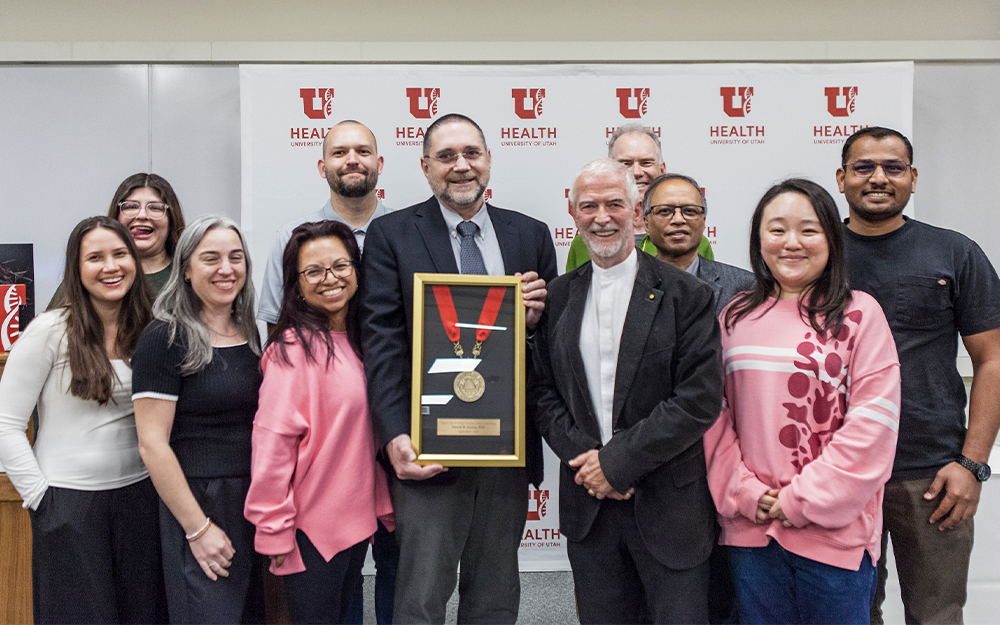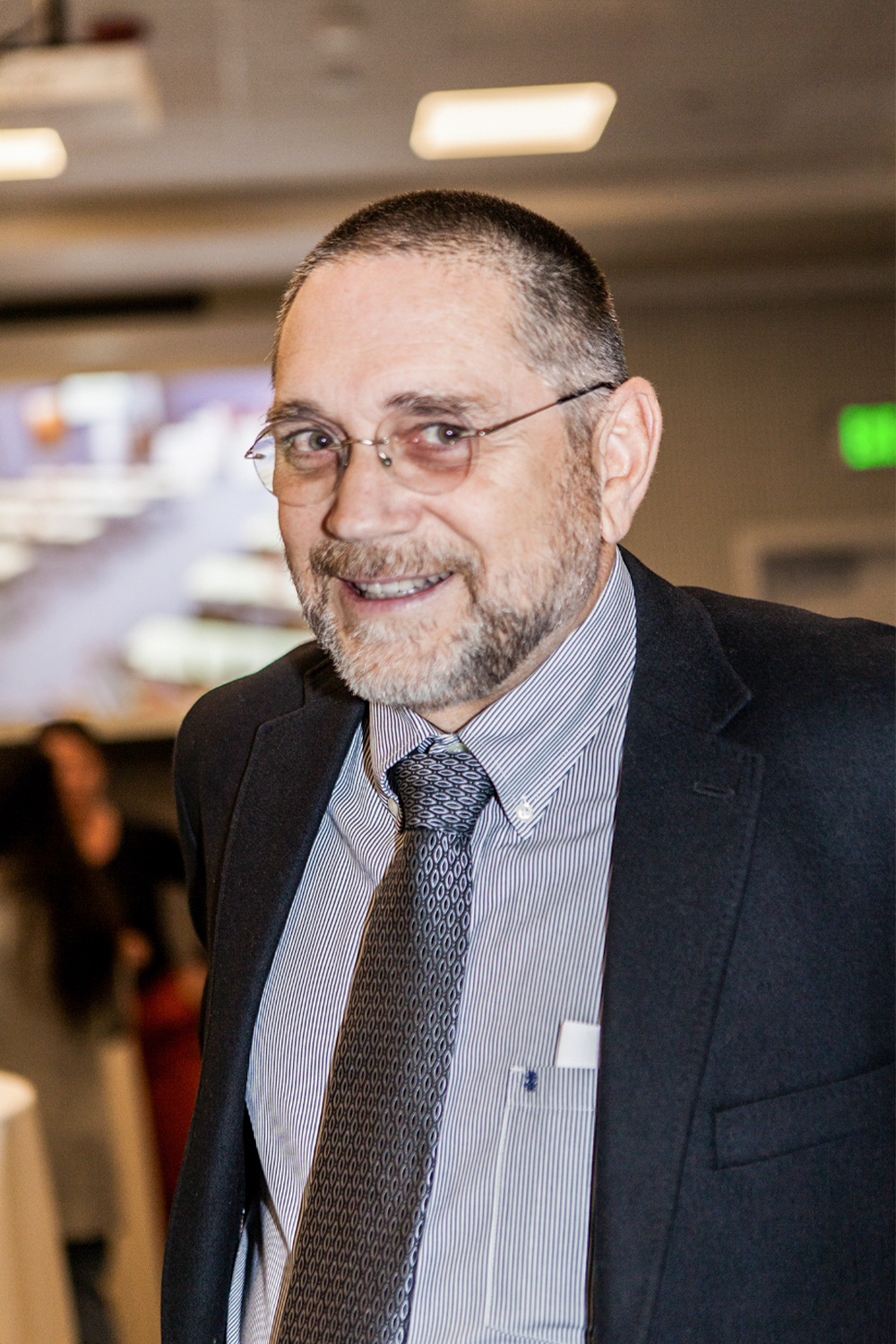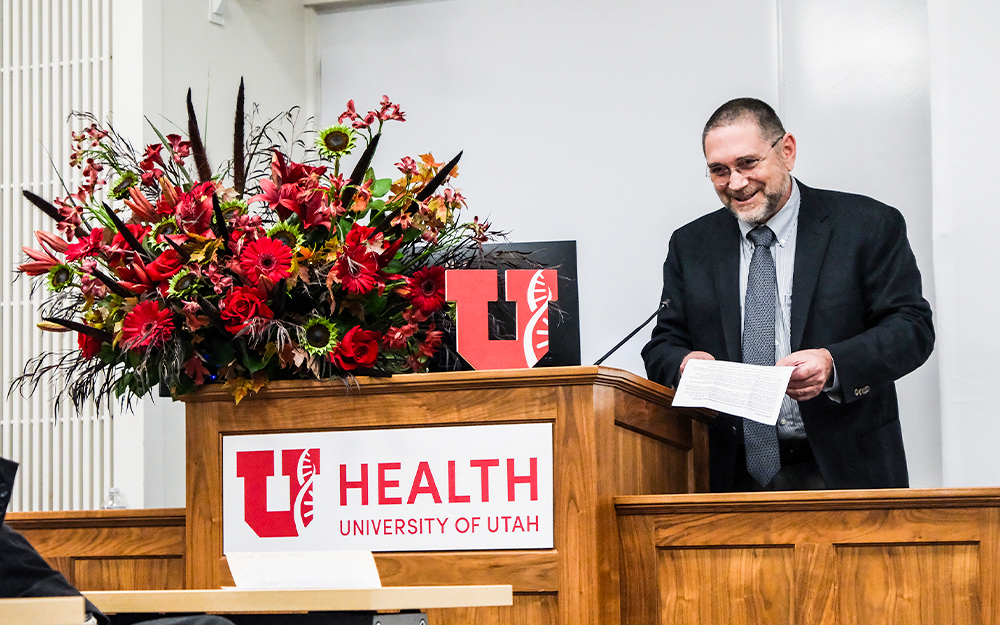From mackerels to medicine
Daniel Scoles Ph.D. ’94 used genetic training at the Batten School & VIMS to pivot into neurological research.
 When Daniel Scoles arrived at William & Mary's Batten School & VIMS in 1987, he brought with him a biochemistry degree from the University of California, Riverside and a deep curiosity about the natural world. “I had read about a researcher managing the genetics of tigers in U.S. zoos and another trekking through the Amazon for new paint pigments — both with degrees in biochemistry — which convinced me it was a versatile path,” he said.
When Daniel Scoles arrived at William & Mary's Batten School & VIMS in 1987, he brought with him a biochemistry degree from the University of California, Riverside and a deep curiosity about the natural world. “I had read about a researcher managing the genetics of tigers in U.S. zoos and another trekking through the Amazon for new paint pigments — both with degrees in biochemistry — which convinced me it was a versatile path,” he said.
An engaging undergraduate course in evolution had steered Scoles to marine biology, an area in which he already had a recreational interest. “On weekends, I often drove to Laguna Beach to snorkel at Diver’s Cove,” he said. “I later learned that great white sharks in that area were known to bite surfboards on a rope. I consider myself lucky to still be here!”
Following the death of his mother, then application and acceptance into the Batten School of Coastal & Marine Sciences & VIMS, Scoles sold the family home and moved across the country to Virginia to study the population genetics of marine fishes. “Although I’m no longer working as a marine biologist, that was my original plan,” he recalled.
Today, Scoles is Professor of Neurology at the University of Utah School of Medicine, demonstrating the true diversity of career accomplishments that can be achieved with a Batten School & VIMS education.
A vibrant graduate community
On the Gloucester Point campus, Scoles found not just academic rigor but also a strong sense of camaraderie in the fisheries department. “I’m not sure what it’s like today, but back then, the fisheries students were quite fun,” he said. He nostalgically remembers the regular parties and seafood barbecues.
Those friendships and adventures remain central to how he reflects on his graduate years: “The sense of community was strong, and my time as a graduate student at VIMS remains one of the most meaningful chapters of my life.”
 The program also gave him opportunities to explore the field in unique ways. He tagged striped bass, served as weighmaster for a fishing tournament, canoed the Rappahannock and joined a 10-day National Oceanic and Atmospheric Administration cruise to sample plankton. That voyage included an unexpected rescue of a de-masted sailboat alongside the U.S. Coast Guard, exemplifying how graduate school was a time of both serious research and memorable experiences.
The program also gave him opportunities to explore the field in unique ways. He tagged striped bass, served as weighmaster for a fishing tournament, canoed the Rappahannock and joined a 10-day National Oceanic and Atmospheric Administration cruise to sample plankton. That voyage included an unexpected rescue of a de-masted sailboat alongside the U.S. Coast Guard, exemplifying how graduate school was a time of both serious research and memorable experiences.
Diving into population genetics
Under the guidance of his advisor, John Graves, Scoles pursued studies in population genetics, focusing on the contrasting dispersal and structure of different marine species. His dissertation compared yellowfin tuna, known for their mobility, with mackerels, which form more isolated populations around the globe.
“Yellowfin tuna showed genetic similarity between Atlantic and Pacific populations, likely due to their ability to migrate around the Cape of Good Hope during the summer,” he explained. Later work with more advanced markers revealed even greater complexity than he initially observed.
It was Scoles’ study of mackerels, however, that left the deepest impression. “We identified distinct genetic patterns in two regions — Japan/Mexico in the north and Australia/New Zealand in the south — reflecting ancient climatic shifts. Warm equatorial waters once separated the two populations that diverged genetically. Later global cooling permitted limited mixing, followed by renewed isolation during subsequent warming; events that left clear signatures in the genetic patterns we uncovered.”
He added, “It is amazing how genetic patterns reflect historic global warming patterns. Genetic patterns are an echo of deep global climate change.”
From fish genetics to neurology
Following graduation, Scoles’ career took a surprising turn. “After completing my Ph.D., life assumed a more unpredictable rhythm, but I eventually accepted a postdoc position at the University of South Carolina (USC) studying the genetics of cultured striped bass.”
At the same time, Scoles was drawing on his biochemistry background to apply to postdoc opportunities in cancer research and neuroscience — and those efforts paid off. Three months into the USC position, Scoles received a call from neurologist Stefan Pulst asking Scoles to join a lab at Cedars-Sinai Medical Center.
 That leap into human genetics became the defining trajectory of his career. Scoles has worked alongside Pulst for more than 30 years, even as their lab moved to the University of Utah in 2008. Together, they have developed therapeutics for neurodegenerative diseases, including Parkinson’s disease, Alzheimer’s disease, and a drug for amyotrophic lateral sclerosis (ALS) that was evaluated in a clinical trial. In 2024, Scoles was promoted to full professor of neurology, and in September of 2025 he was honored by being named the Inaugural Dr. John P. Punke Endowed Chair in Neurology at the University of Utah.
That leap into human genetics became the defining trajectory of his career. Scoles has worked alongside Pulst for more than 30 years, even as their lab moved to the University of Utah in 2008. Together, they have developed therapeutics for neurodegenerative diseases, including Parkinson’s disease, Alzheimer’s disease, and a drug for amyotrophic lateral sclerosis (ALS) that was evaluated in a clinical trial. In 2024, Scoles was promoted to full professor of neurology, and in September of 2025 he was honored by being named the Inaugural Dr. John P. Punke Endowed Chair in Neurology at the University of Utah.
With achievements that have cemented his role at the forefront of medical research, Dr. Scoles is currently funded by a new R01 award from the National Institutes of Health (NIH) for developing therapeutics for ALS. He is also funded by an NIH IGNITE (Innovation Grants to Nurture Initial Translational Efforts) grant supporting therapeutic development for multiple neurodegenerative diseases. Other support for his research comes from the Department of Defense.
Advice for today’s Batten School students
Looking back, Scoles credits the Batten School & VIMS for equipping him with resilience, independence and assertiveness. “For me, one of the turning points was the moment I thought, ‘How will this ever end?’ That was when I stopped waiting for direction and started making key decisions that moved my research — and my degree — forward,” he said.
Scoles’ advice to current graduate students is straightforward: “Take charge. No one else will do the work for you, and no one else is responsible for making sure you finish. Own your work. Drive it. Make it something you're proud of.”
From studying the genetic patterns of mackerels to developing new therapeutics for ALS and Alzheimer’s disease, Scoles’ professional journey reflects the versatility of a Batten School & VIMS education. The friendships, fieldwork and mentorship he experienced as a graduate student shaped his approach to research and prepared him for a career investigating human health. Today, Scoles’ story is a reminder that the paths curated at the Batten School & VIMS can extend far beyond the shoreline.

